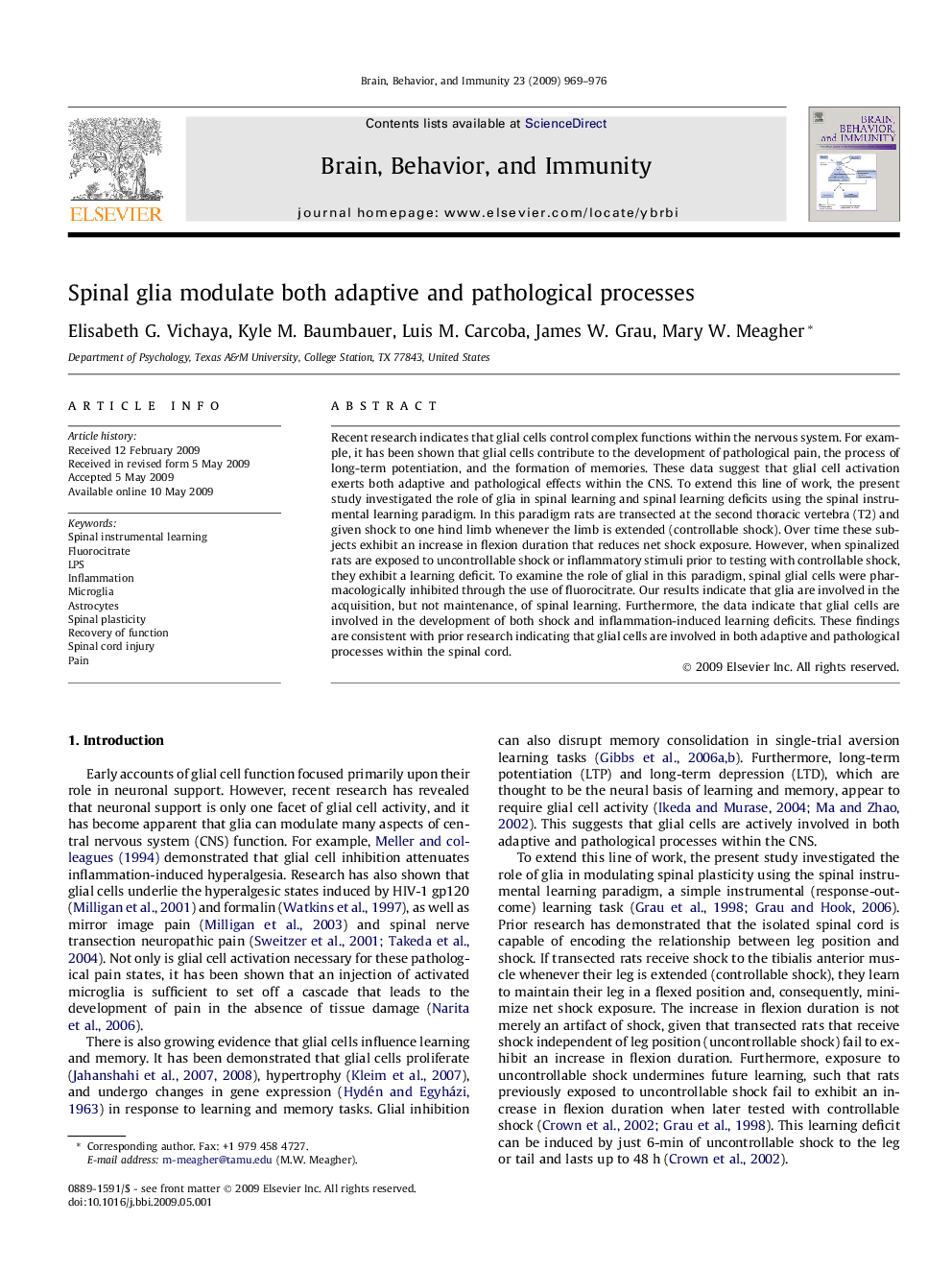| Article ID | Journal | Published Year | Pages | File Type |
|---|---|---|---|---|
| 923501 | Brain, Behavior, and Immunity | 2009 | 8 Pages |
Abstract
Recent research indicates that glial cells control complex functions within the nervous system. For example, it has been shown that glial cells contribute to the development of pathological pain, the process of long-term potentiation, and the formation of memories. These data suggest that glial cell activation exerts both adaptive and pathological effects within the CNS. To extend this line of work, the present study investigated the role of glia in spinal learning and spinal learning deficits using the spinal instrumental learning paradigm. In this paradigm rats are transected at the second thoracic vertebra (T2) and given shock to one hind limb whenever the limb is extended (controllable shock). Over time these subjects exhibit an increase in flexion duration that reduces net shock exposure. However, when spinalized rats are exposed to uncontrollable shock or inflammatory stimuli prior to testing with controllable shock, they exhibit a learning deficit. To examine the role of glial in this paradigm, spinal glial cells were pharmacologically inhibited through the use of fluorocitrate. Our results indicate that glia are involved in the acquisition, but not maintenance, of spinal learning. Furthermore, the data indicate that glial cells are involved in the development of both shock and inflammation-induced learning deficits. These findings are consistent with prior research indicating that glial cells are involved in both adaptive and pathological processes within the spinal cord.
Keywords
Related Topics
Life Sciences
Immunology and Microbiology
Immunology
Authors
Elisabeth G. Vichaya, Kyle M. Baumbauer, Luis M. Carcoba, James W. Grau, Mary W. Meagher,
